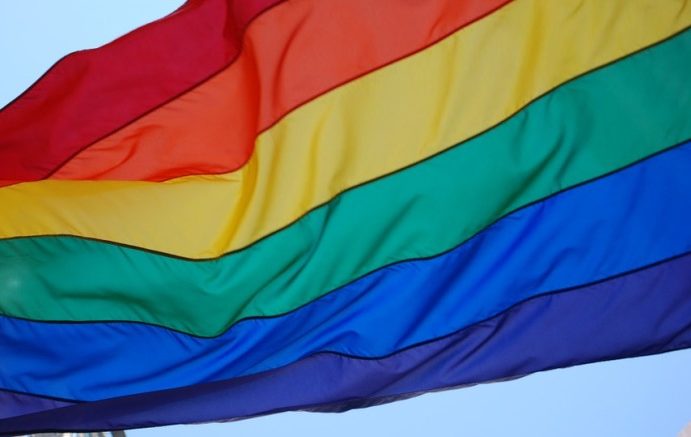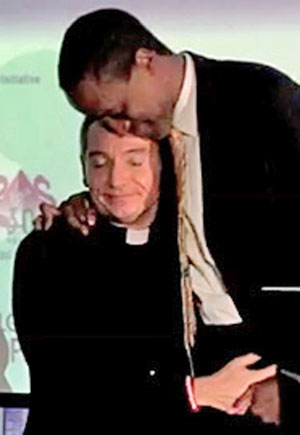Commentary: See how Jamaican law on same-sex marriage afflicts 4 couples
Colin Stewart is a 45-year journalism veteran living in Southern…
- Fleeing the country to elude a contract killer.
- Worrying about insurance and inheritance.
- Seeking to adopt, but barred from doing so.
- Caring for elderly parents alone.
The tales of four same-sex couples in Jamaica, including his own, show the importance of approving same-sex marriage there, Jamaican-Canadian activist Maurice Tomlinson writes.

By Maurice Tomlinson
COMMENTARY — In 2018 when I filed my challenge to Jamaica’s constitutional ban on same-sex marriage I had very personal reasons for doing so. I wanted to return to the island to care for my aged and ailing parents and I needed my husband to join me. His emotional and financial support would be crucial during the difficult days ahead. However, our 9-year Canadian marriage is not recognized by Jamaica and so my husband will not qualify for the right to live and work in the country. This would basically leave me alone to face one of the most daunting tasks of any family, supporting our elders in their declining years.

When I filed the case against the marriage-equality ban, I felt very isolated. I did not think that many LGBT Jamaicans cared about marriage as their focus seemed to exclusively be on repealing the archaic anti-sodomy law. Frankly, I couldn’t blame them, as that oppressive British colonially imposed edict contributes to horrendous acts of homophobic violence and persecution against LGBT citizens.
But I soon became aware that many other queer Jamaican couples have been suffering in silence because of this prohibition against their relationships. Not only does the ban discriminate against these couples, but it also gives licence for sometimes deadly attacks against them and their children.
There were already multiple stories of Jamaican mobs invading the homes of gay partners and forcibly ejecting them or, worse, murdering them while they slept. Even when police were called to the scenes of these heinous crime, no one was ever arrested and so the attacks continued unabated. In addition to these extreme cases, many other couples are enduring untold misery because of the ban.
Below are a few examples of people who shared their painful stories with me on condition that they remain anonymous. The safety of their family members demands this invisibility. [All the names below are pseudonyms.]
Fleeing the country to elude a contract killer
Annie and Beth are lesbians who lived together for two years while raising Beth’s daughter. However, when the child’s father found out about their relationship, he sent armed gunmen to kill the women because he did not want his child exposed to “that lifestyle.” Luckily, Annie and Beth were tipped off about the planned hit and managed to flee the country. They are now seeking asylum in the U.S.
Worrying about insurance and inheritance
Carol is a lesbian who has been in a committed relationship with her partner Delia for over five years. Had they been heterosexuals, their relationship would be legally recognized as a common-law union with most of the rights of marriage. Instead, the ban makes them legal strangers, despite their years together, and both women are worried that they will not be able to care for each other in case one of them is medically incapacitated. They also don’t have inheritance rights, can’t qualify for each others’ National Insurance pension and, while their private health insurance plan conceded to recognize their relationship, they have no guarantee that this will be done in the public health care system.
Wanting to adopt a child, but barred from doing so
Edward is a gay Jamaican who fled the country and now lives with his husband in the UK. On their only visit to the island as a couple, they were attacked by men who hurled rocks and homophobic slurs at them simply because they were walking together. Five years ago, they adopted a son and are planning to adopt another child, something that would be impossible in Jamaica. Our Adoption Act allows couples who are married to adopt but since gay relationships are not recognized as valid there would be no support for gays to become parents. This is even though Jamaica has hundreds if not thousands of children languishing in state care and multiple studies have shown that children raised by same-sex parents perform just as well as, and sometimes better than, children raised by straight couples.
We are just some of the many Jamaicans in same-sex relationships who have been denied our right to family by this unconscionable and unnecessary ban on recognizing our unions. As humans we deserve better. As citizens we demand better. Our families matter too.
In response to my case, the Jamaican government basically argued that a ban on same-sex unions including marriage is valid because it is supported by most people. By that flawed logic blacks would still be riding at the back of the bus! Human rights cannot be subject to the whim of the majority. Then they are not rights, but privileges.
I submitted my reply to the government’s spurious arguments [on April 5] and I hope that the Inter-American Commission on Human Rights, which will review the case, decides to hold a hearing soon. Every single day Jamaican LGBT families endure discrimination and abuse because of the ban, and it is time to end this injustice. Now. Before anyone else is hurt.




